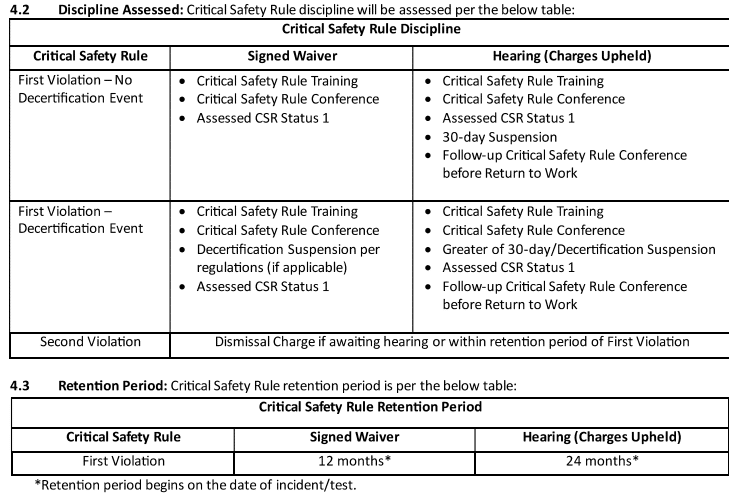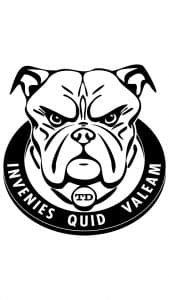On Thursday, January 18, the Union Pacific Railroad (UP) and its new “All in it to win it” PR campaign were spotlighted in an article from Progressive Railroading.
In it, UP’s CEO Jim Vena and his team of executives did their best to paint a happy picture of a thriving company driven by the best interest of their frontline employees and heading in the right direction as a united front. This must come as a surprise to our brothers and sisters working for the UP.
Judging by the skyrocketing number of our members being disciplined and taken out of service under Vena’s new “12 Critical Safety Rules” policy, it is hard to imagine these conductors and engineers feel the same. Vena may very well have a “workplace family” at UP as laid out in the article, but it appears that labor is clearly not valued nor a part of it.
This new policy that took effect January 1 is the discipline policy equivalent of BNSF’s Hi-Viz attendance policy.
If this uptick of discipline cases was part of a larger push by the railroad to emphasize safety at UP, it would make some sense. However, that is not the case by any means. First, UP has yet to comply with the mandate from Department of Transportation Secretary Pete Buttigieg to join the federal close call reporting system known as C3RS. Any authentic corporate move toward an improved safety culture would have participation in this program as a cornerstone of the effort. Second, per a letter sent to UP’s Vice President of Labor Relations on January 5 by the five SMART-TD General Chairpersons who represent UP members, the carrier’s corporate culture has not made any such move toward safety.
In the GCs’ letter, they point out that UP has reduced training periods for new employees, as well as reducing refresher trips for current employees, along with reducing training periods in yards for foremen. UP has also done away with full-time safety positions. To say this company is instituting the absurdly strict discipline policy as part of an overall strategy to promote safety is simply disingenuous corporate propaganda.
At the heart of SMART-TD’s concerns over the new discipline policy is the harshness of the penalties, the scare tactics management uses to keep employees from working with their union, and that a second offense in two years results in a dismissal charge. All three of these directly contrast with the picture of the organization they painted for Progressive Railroading. This graph produced by UP displays these three points better than can be described.

Could this simply be another game of three-card Monte? Is UP using alleged “safety” violations as a knife to cut out employees instead of furloughing the employees? Does UP believe harsher punishment along with prior cuts to maintenance personnel produce the gain in profits needed in its 2.0 version of Precision Scheduled Railroading (PSR)?
This 12 Critical Safety Rules policy is designed to ensure that no one walking the ballast for UP has any sense of job security. At the same time, it’s designed to strategically drive a wedge between members and their union. The fact that involving your local chairperson in the process and having a hearing instantly doubles your probation period from 12 months to 24 and tacks on an instant 30 days on the street, is a straightforward message that UP does not want SMART-TD to intervene on our members’ behalf.
Perhaps this is a direct response to SMART-TD’s recent uptick in our win percentage against the carrier. Our UP local chairpersons and general committees have been victorious on appeals at a rate that is unprecedented. Our members are getting put back to work and retro pay is flowing into our locals at a steadily increasing rate.
Class I railroad empires were not built on a business model that tolerates fairness or even-handed treatment of their workforce. That is why the word “railroaded” is defined on dictionary.com as “to force a person into an action with haste or by unfair means.” There is no better way to describe how UP is “incentivizing” our members to sign waivers to avoid the looming hammer of discipline that arises from this new policy.
To be even more cynical about UP’s motives surrounding this policy, it feels as though they are using mass discipline in 2024 to avoid the need to furlough employees. In 2022 and 2023, UP came under federal scrutiny about the contrast between their mass furloughs and job cutting and their inability to honor their contractual obligations to service their customers. On two occasions the U.S. Surface Transportation Board (STB) had to step in and order UP to service customers who had filed complaints. The list of customers that were “embargoed” due to lack of manpower hit astronomical levels and with over 1,000 customers in 2022, per reporting from Railway Age Magazine.
Public and customer pressure has been widely applied to UP and other Class I railroads to address staffing levels and to service the American economy the way our nation’s railroads have been consistently relied upon to do since the 1860s. In short, it would be a bad look for the company to continue to furlough employees. Such would invite further scrutiny from the STB.
With furloughs off the table, the new discipline policy will put our members on the street en masse. UP is seemingly using the blanket 30-day suspension of its employees as a rolling furlough, ensuring that a large percentage of its T&E employees are off the payroll at all times. These 30-day penalties are enforced on the first offense an employee is accused of, with dismissal on the line for a second offense within 24 months.
Ironically, in the Progressive Railroading article, CEO Vena professes quite a different view on making mistakes on the job. In the article, he’s quoted as saying, “Since people in the field predominantly will execute change, sometimes their decisions will turn out to be errors. That’s to be expected and it’s OK to make mistakes because vast improvements sometimes require the courage to make hard decisions.”
In the article, Vena went deeper into this subject saying, “No one is perfect — mistakes will be made. I have made mistakes.”
As he notes, it is not only OK to make mistakes, but it is to be expected. In his own words, these errors in the field are a natural product of our members executing the changes he has brought to how UP does business.
But even the worst baseball player gets three strikes before they’re out. At UP, as a rail employee working under this policy, you get one, perhaps two.
Since CEO Vena has come clean on the fact that he, in fact, is capable of making errors, SMART-TD would like to encourage the new head of the largest railroad in the United States to take the next step and admit that this new 12 Critical Safety Rules policy is an example of where he has made a massive error. SMART-TD is challenging UP, its upper management, and Vena himself, to call this experiment what it is, a mistake, and to do the right thing by their workers and their customers by repealing it.
Until they do, our union is prepared to fight them from the top down. We encourage our brothers and sisters working for the UP under this policy to reject the company’s incentive to sign discipline waivers and not to voluntarily give up their rights to representation by their union.
Just as every winter slowdown turns into a summer busy season, we are confident that this ridiculous set of rules and outlandish punishments will also run its course.
One thing for sure is that a signed waiver does not go away. Please work safe. Please do your job with the dignity and respect for the equipment and work environment that the job demands, and when Vena and his ill-advised policies try to take what you’ve worked for away from you and your family, lean into the experience and institutional knowledge this union affords you.
Together, we will call this situation out for what it is. Stand up to this injustice and we will win this fight as a union family.
If CEO Vena truly wants to promote safety on his railroad, he should feel free to call SMART-TD’s Cleveland headquarters and schedule a conversation. We’ve been focused on the safety of rail operations since our founding. We would be happy to share what we know.
